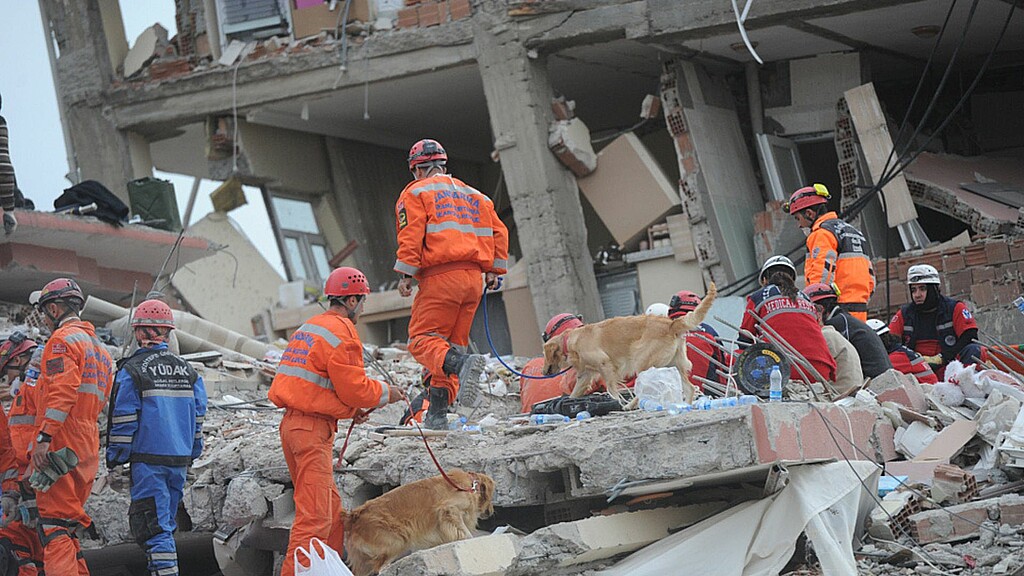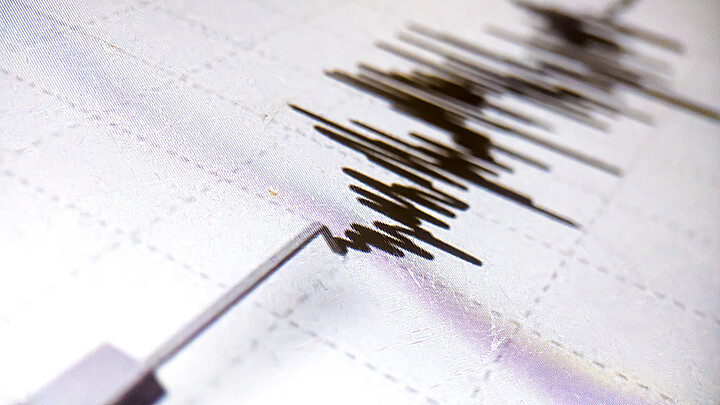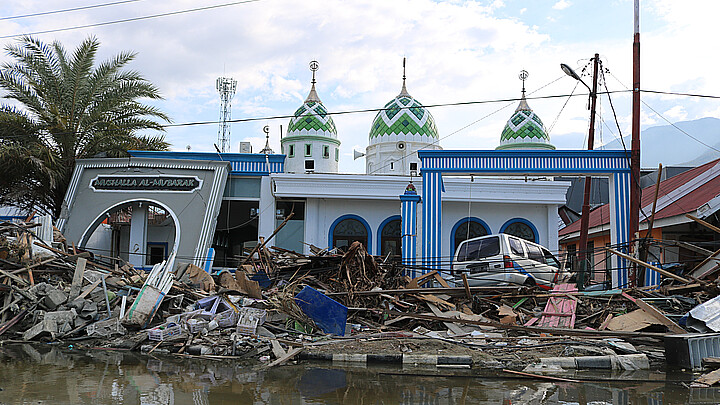Trending
More than 1,300 dead after 7.8 earthquake hits Turkey and Syria
The death toll is expected to rise for both countries as rescue teams search for survivors that have been left trapped under the rubble of collapsed buildings

February 6, 2023 2:11am
Updated: February 7, 2023 9:13am
More than 1,300 people were killed after a 7.8-magnitude earthquake hit Turkey and Syria on Monday, causing several buildings to collapse and leaving many trapped underneath the rubble.
The earthquake struck the region just after 4 a.m. local time 14.2 miles (23 kilometers) east of Nurdagi, near the Turkey-Syria border, with a depth of 14.9 miles (24.1 kilometers), according to the United States Geological Survey (USGS).
Scary footage of the earthquake in Turkey tonight.
— Faytuks News Δ (@Faytuks) February 6, 2023
pic.twitter.com/NweJRwrnhn
Strong aftershocks were felt throughout Turkey, with a 6.7 magnitude one striking about 20 miles (32 kilometers) northwest of the epicenter about 11 minutes after the main earthquake.
At least 912 people were killed and more than 5,838 were injured in the quake in Turkey, according to the country’s disaster management agency AFAD. In Syria, more than 326 people died and 1,042 were injured, according to a Ministry of Health Official.
Absolutely horrific scenes out of city of Iskenderun #Turkey, vast devastation and destruction from magnitude 7.8 earthquake. People feared to be under rubble. Death toll already above 200… pic.twitter.com/7Fo6yIyut6
— Joyce Karam (@Joyce_Karam) February 6, 2023
The death toll is expected to rise for both countries as rescue teams search for survivors that have been left trapped under the rubble of collapsed buildings.
Rescue teams pulling children from the under the rubble of #collapsed buildings in northwestern #Syria
— Chaudhary Parvez (@ChaudharyParvez) February 6, 2023
At least 50 people killed, 500+ injured, 140+ buildings destroyed in southern Malatya province as 7.8 #earthquake hits #Türkiye.#deprem #DepremiOldu #Turkey pic.twitter.com/vKnEnG3N2k
At least ten cities in Turkey were affected, including Gaziantep, Kahramanmaras, Hatay, Osmaniye, Adiyaman, Malatya, Sanliurfa, Adana, Diyarbakir, and Kilis. In Syria, most of the deaths were concentrated in the provinces of Aleppo, Latakia, Hama, and Tartus. The tremor was also felt in Lebanon and Cyprus.
The earthquake is the strongest that has hit Turkey since 1939, when a similar earthquake killed more than 30,000 people, according to USGS. In the past 25 years, only seven earthquakes of magnitude seven or greater have hit the region.
“It’s a very large fault zone, but this is a larger earthquake than they’ve experienced any time in recent memory,” Karl Lang, an assistant professor at Georgia Tech University’s School of Earth and Atmospheric Sciences, told CNN.









